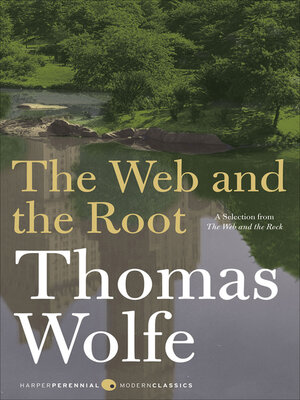
Sign up to save your library
With an OverDrive account, you can save your favorite libraries for at-a-glance information about availability. Find out more about OverDrive accounts.
Find this title in Libby, the library reading app by OverDrive.



Search for a digital library with this title
Title found at these libraries:
| Library Name | Distance |
|---|---|
| Loading... |
A man journeys from a small town to the big city in this prequel to the classic You Can't Go Home Again.
Shortly before his death in 1938 at a tragically young age, author Thomas Wolfe presented his editor with an epic masterwork that was subsequently published as three separate novels: You Can't Go Home Again, The Hills Beyond, and The Web and the Rock.
The Web and the Root features the three initial sections of the The Web and the Rock, widely considered to be the book's strongest material. A prequel to You Can't Go Home Again, with strong autobiographical undertones, it is the story of George Webber's momentous journey from Libya Falls, North Carolina, to the Golden City of the North—offering vivid, sometimes cutting depictions of rural pleasures and small-town clannishness while exploring boundless urban possibility and the complex, violent undercurrents of the metropolis.
"Among his and my contemporaries, I ranked Wolfe first." —William Faulkner
"The only contemporary writer who can be mentioned in the same breath as Dickens and Dostoevsky." —The New Republic
Shortly before his death in 1938 at a tragically young age, author Thomas Wolfe presented his editor with an epic masterwork that was subsequently published as three separate novels: You Can't Go Home Again, The Hills Beyond, and The Web and the Rock.
The Web and the Root features the three initial sections of the The Web and the Rock, widely considered to be the book's strongest material. A prequel to You Can't Go Home Again, with strong autobiographical undertones, it is the story of George Webber's momentous journey from Libya Falls, North Carolina, to the Golden City of the North—offering vivid, sometimes cutting depictions of rural pleasures and small-town clannishness while exploring boundless urban possibility and the complex, violent undercurrents of the metropolis.
"Among his and my contemporaries, I ranked Wolfe first." —William Faulkner
"The only contemporary writer who can be mentioned in the same breath as Dickens and Dostoevsky." —The New Republic






